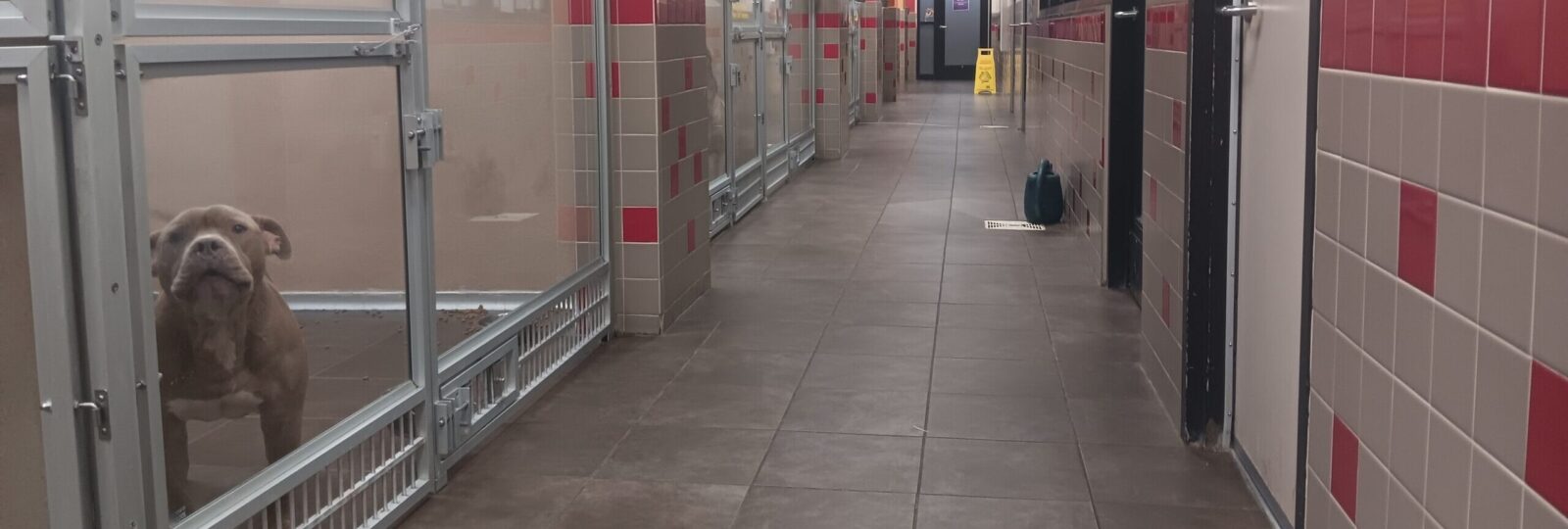Surrendered Pets in Iowa
Share this story

In 2024, the number of pets surrended and in shelters skyrocketed with 3.9 million dogs being abandoned or surrendered nationally. Many Iowa animal shelters face increased surrender rates due to the Iowa bans on certain breeds.
The Iowa Breed Specific Legislation has regulations in place for three different breeds, the American pit bull terrier, the Staffordshire terrier, the American Staffordshire terrier or any dog resembling one of these breeds. Dogs with these traits have more rules to ownership in place like higher fencing and more secure enclosures. These rules are within the Municipal Code of the City of Des Moines.
According to Nic Graziano, the Admissions Supervisor at the Animal Rescue League of Iowa, “A top reason we see surrenders is due to Des Moines legislation. Because of [Iowa Breed Specific Legislation], if you own one of these dogs and live in the city limits of Des Moines, you have to have a few extra things, including liability insurance, licensing, and of course, all of those things cost money, take time and additional resources that a lot of people don’t have.”
The Iowa legislature is in a consistent battle with pet owners and animal advocates because dogs identified as ‘pit bulls’ are in the top five most commonly owned family pets. The ARL is opposed to Breed Specific Legislation and instead promotes regulations depending on behaviors.
A large preventative measure to surrendering dogs is help programs offered through humane societies to help owners in need. At the Animal Rescue League over five different assistance programs have been introduced to make sure surrendering is not the first option for owners – from crisis care to pet food pantries, other options are available.
Livi Friedel, a sophomore at Northwest High School said, “I love rescuing dogs. I foster with aHeinz57, and have fostered about 15 dogs in the past two years. Most of the dogs in shelters have had hard lives and anything you can give to them is very helpful.”
Many families that have the availability are encouraged to foster animals in need, especially those with past experiences with rescuing animals. Most shelters will take surrenders but often do not have the space or resources to sustain management. Another helpful measure is volunteering, especially with high school students.
“I won’t donate money but I can with time if I’m free,” stated Ronin Kindy, a junior at Northwest.
Volunteering is what runs the Animal Rescue Leagues and other humane societies, many with options for high school students to earn Silver Cord hours. Students can help clean facilities and complete other daily chores to help pets in need. The ARL also offers six-month programs for students interested in completing hours of volunteer work on a large scale.
2024 faces an uphill battle with surrendered dogs and pets against legislation in the Des Moines area, while volunteer work and community education can prevent the number of animals without homes.
